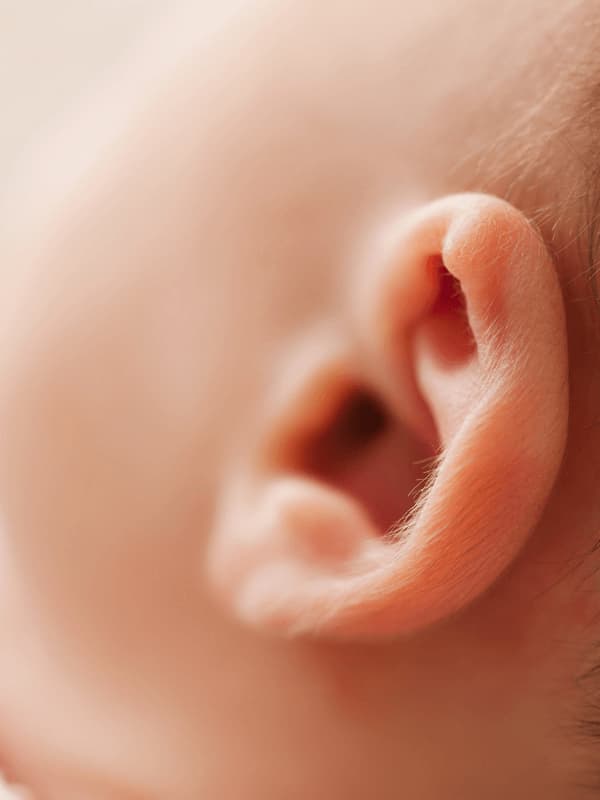
Can Nature's Pharmacy Help Us Hear?
Imagine a world where the rustle of leaves, the laughter of loved ones, or the melody of your favorite song fades into silence. For over 1.5 billion people globally, this is a reality due to hearing loss, with 430 million experiencing disabling conditions. As we observe Deaf Awareness Week, it's crucial to understand the nuances of hearing loss and explore how nature might offer support.1
Understanding Hearing Loss and Deafness
Hearing loss encompasses a spectrum, from mild difficulties in hearing soft sounds to profound deafness, where no sound is perceived. The World Health Organization distinguishes between hearing loss and deafness based on severity and the impact on daily communication. 1
- Hearing loss refers to a partial inability to hear. It can range from mild to severe and often affects one's ability to understand speech.
- Deafness indicates a profound hearing loss, where individuals hear very little or nothing at all.
One prevalent type is Conductive Hearing Loss – a temporary condition that occurs when sound waves are prevented from reaching the inner ear due to obstructions or damage in the outer or middle ear. Symptoms can include muffled hearing, a feeling of fullness in the ear, dizziness, ear drainage, and pain or tenderness in the ear. Common causes encompass earwax buildup, ear infections, fluid in the middle ear, perforated eardrum, or abnormalities in the ear's structure. Fortunately, many cases of conductive hearing loss can be improved or resolved with medical or surgical interventions.2
Another type is Sensorineural Hearing Loss (SNHL) – a permanent form of hearing loss caused by damage to the inner ear or auditory nerve. This damage often involves the cochlea, a spiral-shaped organ in the inner ear responsible for translating sound vibrations into nerve signals.3
Understanding the frequency of sounds is also essential. High-frequency sounds, like a cricket's chirp, have more oscillations per second, while low-frequency sounds, like a drumbeat, have fewer.4 Damage to the cochlea can affect the perception of these frequencies differently.5
The Role of Phytochemicals in Sensorineural Hearing Loss
Recent research highlights the potential of phytochemicals - bioactive compounds in plants—in supporting hearing health. Oxidative stress, an imbalance between free radicals and antioxidants in the body, is a significant contributor to cochlear damage. Certain phytochemicals exhibit antioxidant properties that may protect against such damage.6
5 Phytochemicals Linked to Hearing Protection6:
- Resveratrol: Resveratrol, a natural compound found in plants like grapes, has been shown to protect the ear from damage caused by noise, aging, and certain medications. It works by reducing inflammation and oxidative stress and may even help preserve hearing by protecting inner ear cells.
- Curcumin: Curcumin, a compound found in turmeric, may help protect against hearing loss caused by loud noise and certain medications. When delivered through nanoparticles, it becomes more effective and may help reduce damage in the inner ear by fighting inflammation, oxidative stress, and cell death.
- Epigallocatechin Gallate (EGCG): Studies indicate that EGCG from Green Tea can reduce inflammation and oxidative stress in the inner ear, potentially safeguarding against hearing loss.
- Ginsenosides: Compounds in Panax ginseng, known as ginsenosides, have been found to protect auditory cells from damage due to noise and certain drugs. They work by reducing oxidative stress and inflammation, key factors in hearing loss.
- Allicin: Garlic contains allicin, a compound with antioxidant properties. Preliminary studies suggest that it might help protect against hearing loss by combating oxidative damage in the ear.
Prevention: A Proactive Approach
Preventing hearing loss involves a combination of lifestyle choices and awareness:
- Avoid Prolonged Exposure to Loud Noises: Use protective equipment in noisy environments.
- Regular Hearing Check-ups: Early detection can lead to better management.
- Healthy Diet: Incorporating antioxidant-rich foods may support overall ear health.
Conclusion
While phytochemicals are not a cure-all, they represent a promising avenue in the multifaceted approach to hearing health. By combining dietary choices with preventive measures and regular check-ups, we can take proactive steps toward preserving our hearing. This Deaf Awareness Week7 (05 May – 11 May 2025) - let's tune into the natural symphony around us and ensure it continues to play for all.
Disclaimer:
The information provided is solely for educational purposes. This content does not replace medical advice, diagnosis, or treatment. Consult a qualified healthcare professional for any medical queries or concerns. BeatNaturally does not promote or suggest specific tests, doctors, procedures, viewpoints, or details mentioned in the content.
Sources:
- https://www.who.int/news-room/fact-sheets/detail/deafness-and-hearing-loss
- https://www.enthealth.org/conditions/conductive-hearing-loss/
- https://www.ncbi.nlm.nih.gov/books/NBK565860/
- https://www.nps.gov/subjects/sound/understandingsound.htm
- https://www.ncbi.nlm.nih.gov/books/NBK531483/
- https://pmc.ncbi.nlm.nih.gov/articles/PMC11050722/
- https://bda.org.uk/deaf-awareness-week/
